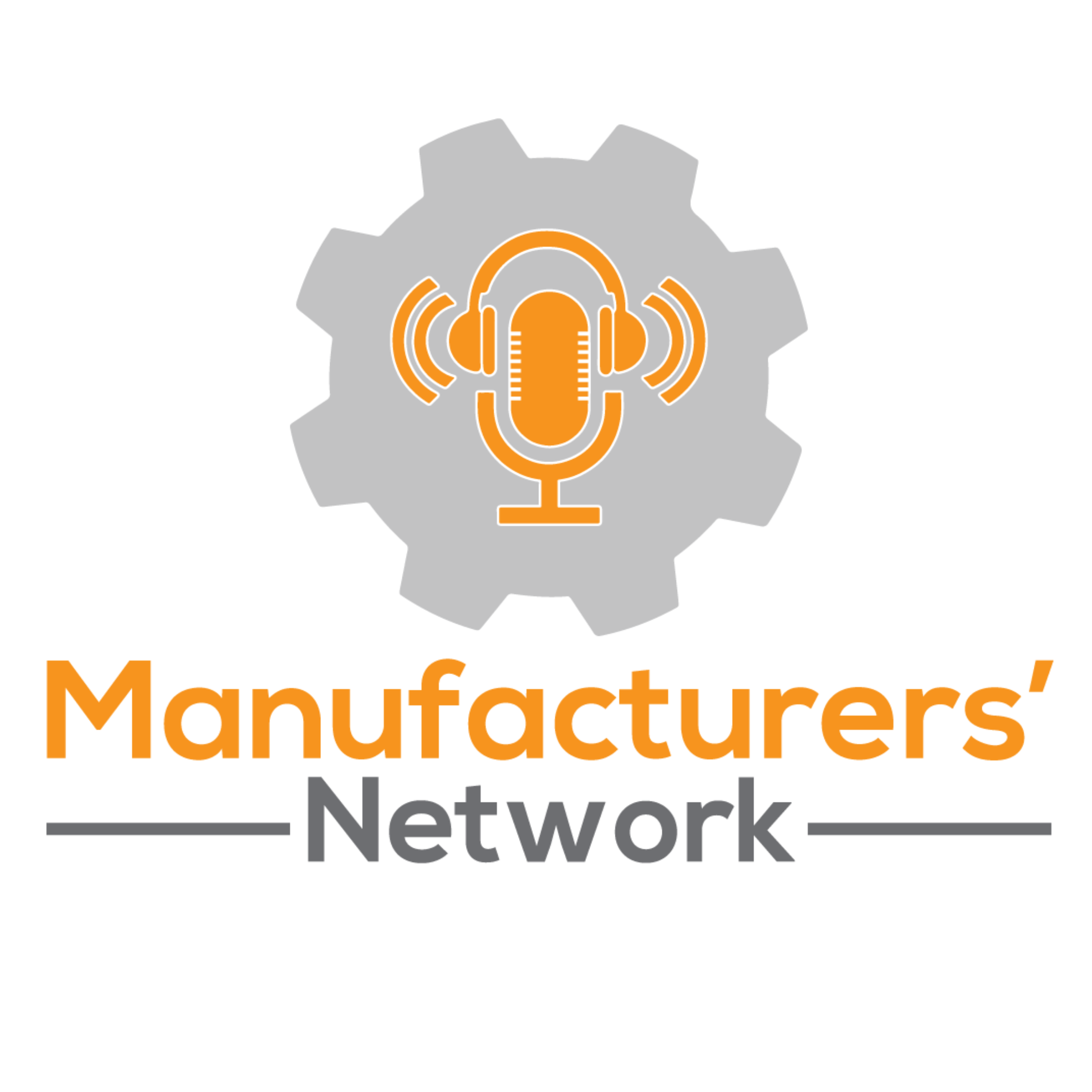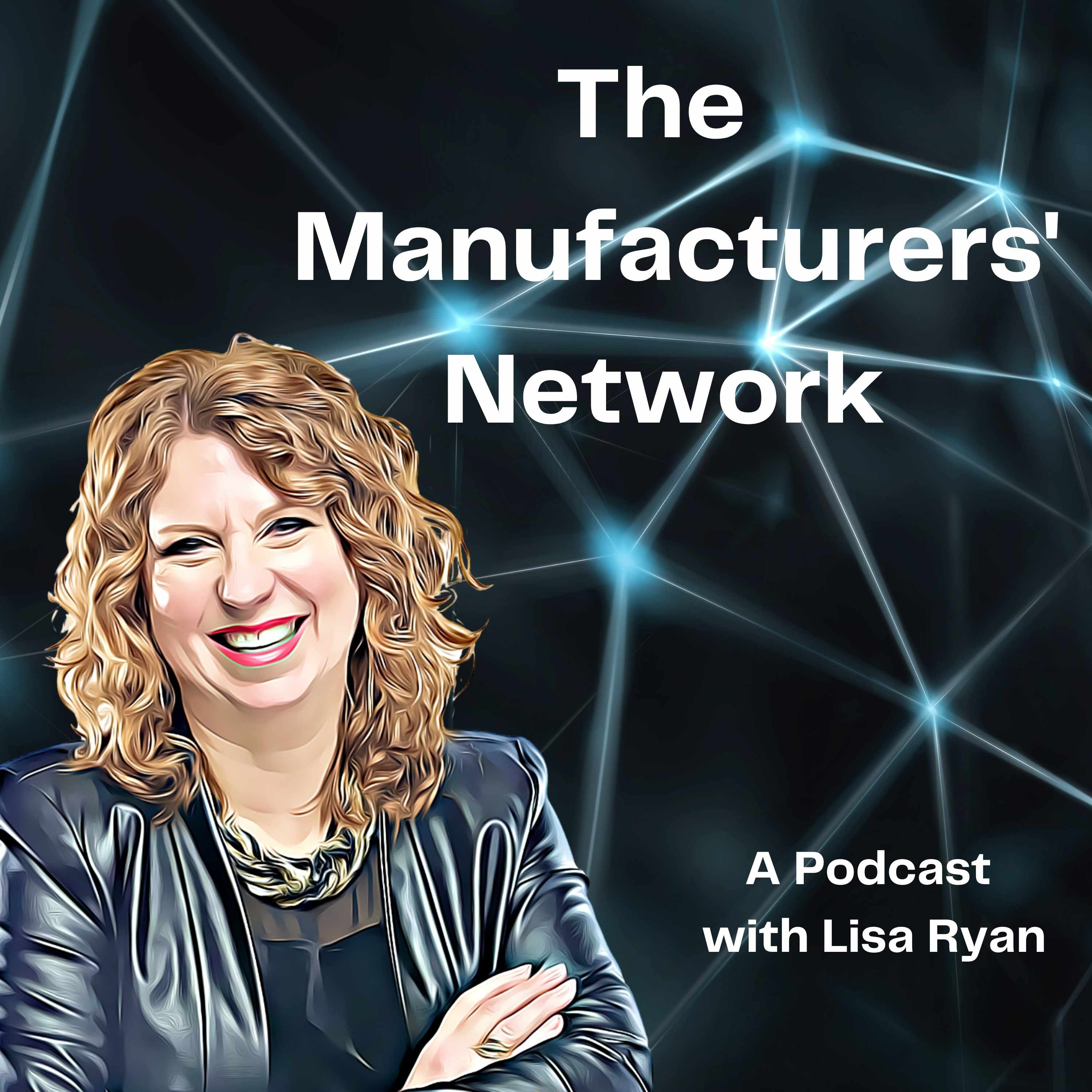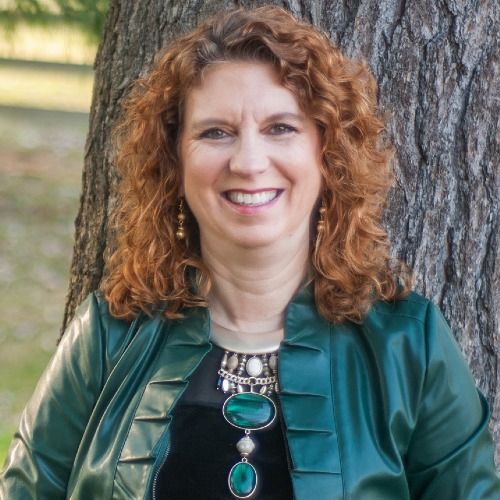Dealing with Different Generations in Manufacturing with Chris Luecke
Connect with Chris Luecke:
www.manufacturinghappyhour.com/community
Show Transcript:
Lisa Ryan: Hey, it's Lisa Ryan of the Manufacturers' Network Podcast. I'm excited to have as my guest Chris Luecke. Chris is a podcaster marketer and self-proclaimed media Maverick in the manufacturing industry.
As the host of the podcast and video series Manufacturing Happy Hour, Chris interviews leaders in the industrial sector to simplify and explore the latest trends and technologies impacting modern manufacturers. Chris recently left his sales job of 11 years with Rockwell Automation to pursue podcasting and marketing full time.
He now helps manufacturers and other industrial companies create lead generating digital content and build dedicated customer communities.
I had the honor of being on Chris's podcast. A couple of months ago. And when I started looking up top manufacturing podcast gets his layer was right in the top 10. So, Chris, it is an absolute pleasure to have you on the show today.
Chris Luecke: It's great to catch up again. Lisa, Thank you for having me. I loved having you on manufacturing happy hour, and I'm excited to be on the other side of the interview table today.
Lisa Ryan: Well, good. Well, you talked about leaving your career at Rockwell automation and now going into working with manufacturers full time. Please share with us a little bit about your background about your journey, and really what led you to where you are and what you're doing today.
Chris Luecke: Sure, and I appreciate the great intro. You know, I, I'll try to tie some things in, and we've things together. So, I worked as a sales guy for Rockwell automation for the greater part of a decade for just over a decade. For context, I'm sure many of your listeners know, but Rockwell Automation is the largest company globally, dedicated to industrial automation and information solution. So, programmable automation controllers, VF, DS, large automation systems. Rockwell automation does all of that.
So, I was working for most of that time in two different markets. I started my career in Houston, Texas. For the latter half of that, I worked as a sales guy out in the San Francisco Bay area. One might imagine, those are two very different markets. In Houston, I served more heavy industry - oil and Gas, Petro Chem, and working with what I would say the more senior generation of individuals; people who had been at their companies for 20-30 something years and hadn't jumped around from company to company. They valued the face-to-face meeting and the handshake that was working in Texas.
Now I go out, go out to the Bay Area Silicon Valley. I think everyone has their visions of what the tech world is like out there. You know, 20- and 30-somethings and their hoodies behind computers cranking out the latest code. And to be honest, that the manufacturing industry has some of those elements out there. It's a younger generation of workers making the decisions out there, and they're not typically sticking around a company for their whole career; they're going to jump every two to three years.
So with that being kind of the two different markets where my career had been, I started podcasting and doing videos at a necessity. I had to think, okay, I'm also a -something. I'm 33 now. I was in my late 20s when I moved out to San Francisco. I'm like, how do I consume content? And I'm like, well I videos and podcasts. I'm likely customers that are my age aren't that different.
So I thought, why not communicate to them the way they're used to being communicated to? I'll create videos. I'll create podcasts. Whether it's someone in that generation or someone older, that's an excellent way for me to be in front of my customers - even when I'm not in front of them. So, it started as a necessity for reaching the type of audience I was serving out in the Bay Area. It evolved into a good sales and marketing practice after that. It not only helped me keep in touch with that generation but others as well.
Lisa Ryan: When you look at the technology, which one of the "gifts" of covid has been pushing us into being a lot more comfortable with tech, and maybe in the long run, it will make it easier to attract the younger generation into manufacturing. Because that's part of changing the conversation, we need to get the guidance counselors in high school to suggest manufacturing and industrial careers and the parents. You're looking at these high tech environments that people are going into now. They're a whole lot different from when I was in the welding industry - when it was everything your mom ever warned you about in manufacturing—but conveying that message. What are some of the ways you've seen organizations starting to do that? Maybe it is a comparison and contrast between Texas and San Francisco. But what's working?
Chris Luecke: Yeah, so it's a great question because helping companies attracting and retaining talent is similar to what I do to help customers attract and retain customers. You're still marketing to someone; you're trying to get them to buy from you.
The other is that you're trying to get them to work for you. When it comes to the younger generation, I think it's essential to take familiar things. Something I referenced a lot was the show "How it's Made." People loved watching that because it's cool to see how a candy bar is made or how a car is made. People like seeing that fast-paced environment inside of a factory.
Now you can take that and couple it with all the new technologies that directly impact manufacturing. You're right that referencing the difference between Houston and San Francisco is a great spot to start because when you think of heavy industry, those are some of the more gritty industries out there. When you're out working in the oil field, for example, even those industries are starting to adopt smart digital technologies that allow them to get more information and do their jobs more effectively.
So that's the second part of my answer. You take the cool manufacturing process, and you combine that with the technology, the analytics, the dashboards, the robotics, all the sexy stuff that's now part of it. Kudos to guys like Elon Musk have shown that, hey, manufacturing a car is very similar to what we do in the tech industry. Now that we have this convergence of tech and manufacturing. I think it's on the manufacturers to create some content around that. That shows how cool how hot how flashy their businesses and how it is a great spot to take your technical background, whether you're just coming out of college as an engineer or whether you're someone that may have worked more on the software side for a while. There are a lot of opportunities in the manufacturing space. To take advantage of the technology that people are used to seeing.
Lisa Ryan: So what are you seeing the recurring themes of the people you've talked to? In your experience, what is keeping manufacturers up at night right now?
Chris Luecke: Yeah, I think the end of 2020 is a great time to be having this conversation because, not to belabor the covid point any longer, but back in March, it was a shock. Lots of people saying, "Oh shoot, I can't go meet with my customer anymore. I can't go to have lunch with them." I'm sharing many perspectives from a career sales guy, but the reality was when covid hit. I don't want to say I was waiting for it, but I was prepared for it because I had started doing podcasting and videos back in 2016. I knew I had a mechanism and a vehicle to reach out to customers. Everyone had had tools they could jump on immediately at their disposal social selling through LinkedIn. To many people's credit, I think some people in manufacturing, whether that's companies or individuals, have gotten better at that people have been utilizing that as a tool out of necessity. Going into one of the things that keep people up at night is that nothing happens at midnight on December 31. It's not like the situation goes away. We're not going to a trade show right away. Many of those in-person mechanisms that people were used to putting their marketing budgets towards don't know what to do with that yet.
So I think one thing keeping people up at night is, "how do I spend that money so that it goes to bringing in new customers, even if I can't do it in the ways that I was used to and I might have to do it for another year." So that's what's I think bugging people right now.
Lisa Ryan: Right. And it's interesting you talk about trade shows because you look at an industry that's been changed by the pandemic. We're used to flying into Vegas, staying in a nice hotel, visiting all the vendors, and now we're doing this online.
I spoke at an event as an avatar where my little avatar could like walk through the grounds, go to the show booth, and talk to the little avatars at the trade show booth. And a few years ago, this technology, number one, would have been terrifying and would have been completely unwieldy, and now it's just not only a different way in a cool way of doing business. But it also allows manufacturers to bring a lot more of their people to these events because maybe they can't put everybody on a plane and send them to Vegas. Still, they can sit around the computer and eat some sandwiches and take some classes together.
Chris Luecke: Yeah, no, you're right. And actually, I'm glad you bring it up because that's another thing that I think people are still trying to wrap their heads around is, "How do I take advantage of a virtual trade show," because you're right, the training opportunities are there. No longer do you have to handpick the three to five people who will get to go to Vegas, Orlando, or wherever the conferences that year. You can have anyone sign up for those and take advantage of the training. On the flip side, this goes back to what I do with manufacturers and helps them with their marketing and sales.
They're tremendous opportunities to access the exact type of customer you're looking for at those events. When you're at a trade show on the show floor, you're hoping the right person walks by your booth. Now, in some of these trade show platforms, you can jump in and search for VP marketing. You can search for the technology director, you can search for automation, and anyone with that title or that word in their title will pop up. It's almost cheating at that point because you're like my ideal customer is at this show, and I can find the perfect persona as well.
So I think another big thing. It's like, hey, how do, how do we take advantage of trade shows the right way because, yeah, I'm looking forward to being back in front of people and go into the actual in-person happy hours. Again, but there's a lot of power to these virtual platforms from a training standpoint and a sales and marketing standpoint. I think people are still really trying to get their hands around it.
Lisa Ryan: Right. And taking advantage of it not being afraid of the technology. I mean, it's undoubtedly gotten so much easier today than it was just a few years ago, but there's still a lot of people in the workplace - and maybe in your more of the Texas-based type of clientele that well, this is the way we've always done. We don't need those darn computers. We're not going to go on video and being okay with it.
The whole video thing has made us all a lot more human, with kids and pets and everything else in the background. But if you want to upgrade how you see in the market, use technology to be seen in the market. The whole point of this podcast is to create that network of manufacturers. Listeners can say, "Hey, I n reach out to Chris to reach out to this person for this. So, and I know that you have your own group on LinkedIn. But share with us a little bit about what kind of support you offer how people can get ahold of you and know if there's anything or people you would like to connect with to the whole circle.
Chris Luecke: So I'll give two answers to that. So the first thing is, in terms of what I do to help people out. We talked about figuring out how to take advantage of trade shows; how to repurpose marketing dollars. That's where I help people right now. Whether it's creating that first piece of content or developing a quarterly content strategy—figuring out how to post the right things to social media that don't just generate engagement but drive people wanting to buy from you; those are things I do, along with helping people launch podcasts and stuff like that. This kind of media-centric approach to marketing helps their customers tackle their ideal challenges through their content. So that's, that's what I do.
The second thing to that is in terms of you know me helping people helping me. I take the same approach to that; as you mentioned, I run a community as part of Manufacturing Happy Hour. In addition to the podcast and the video series, Manufacturing Happy Hour has an industry community -it's a LinkedIn group. It's a LinkedIn community of 300 plus manufacturing leaders that I always describe as the type of people that it's not always a CEO. There are some executives in that group. Some people lead teams, but I think the controls guy that's on the plant floor. That's not afraid to suggest something to leadership and saying, Hey, if we implement this. I know this will get the result you're looking to achieve.
That's what I, that's what I consider a leader. Anyone that's looking to take their career and their business to the next level. So those are the type of people that are in that group. I look for ways to connect people with the right folks. What I offer isn't always what someone's looking for, but the chances are that i's all about creating that community in that ecosystem of people who can help. And you know this better than anyone creating the Manufacturers Network, so, if anyone wants to join that, the link to that is manufacturinghappyhour.com/community.
Lisa Ryan: Yeah, and we're at a point right now that it's probably going to be a while before we can get back in person and shake hands and have those sales meetings, but on the other hand, platforms like these allow you to not only connect with people in different industries but take advantage of what's working in a completely different industry than yours. You can take that and implement that in your plan because trade associations are fantastic, and I highly recommend that you join your trade organization. Still, sometimes that leads to this tunnel vision that it's like this is what happens in our industry. Maybe you can learn something from somebody in a completely different industry and still be able to move your business forward.
Chris Luecke: Yep. Now we let yeah you nailed it like learning. I always think learning from other industries is the quickest way to figure out what's working. Everything I do with podcasting and videos in the manufacturing space, I have borrowed that from other industries using that for years. It's all about repurposing it for the space you're in. Whether it's in automotive and learning something from someone in food and beverage quickest way to get great ideas that you can implement fast.
Lisa Ryan: All right, well, we are getting to the end of our time together. And I know we will have many more conversations on different topics as this podcast grows, but what's the best way for people to get ahold of you, whether they want to share ideas with you or bring in to help them with their digital platforms.
Chris Luecke: Sure. So I'll point to one spot, and since I mentioned it before, I'll repeat it, LinkedIn is a great spot. You can find me there. But I would say, request to join the Manufacturing Happy Hour industry community - that's manufacturinghappyhour.com/community. It takes you straight to the group on LinkedIn.
I have to approve anyone who comes in; obviously, anyone listening to your show will get a pass because you know I know you're the type of person that would fit the mold of a manufacturing rock star. But yeah, that's the easiest spot to find me. And if you know if you want to talk sales, marketing after that happy to keep those conversations go in there.
Lisa Ryan: Alright. Awesome. Well, Chris. Again, thank you so much for being on the show today. I'm your host, Lisa, Ryan. And this is the Manufacturers Network podcast. See you next time.


